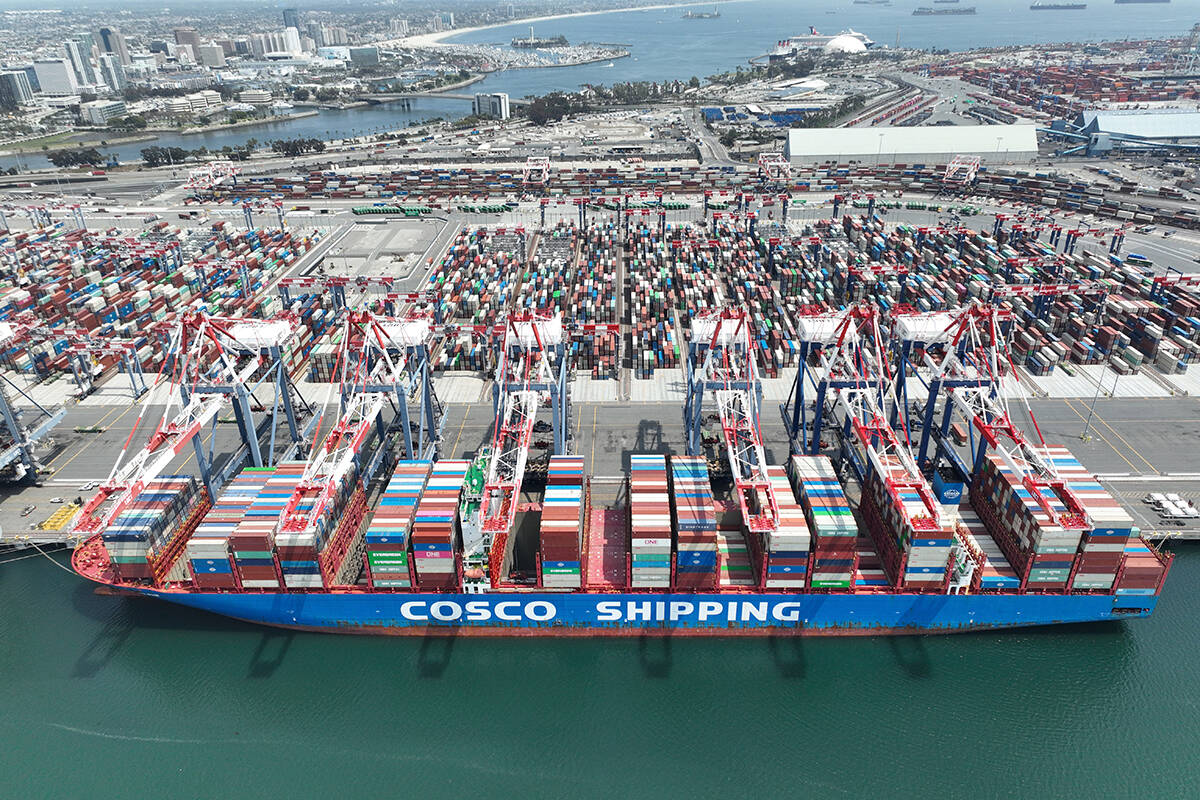Saskatchewan agriculture minister Lyle Stewart was convinced in September that a new national farm policy deal that limits government’s future role in farm support set the right direction for the sector.
With months since then to reflect on the deal that potentially cuts hundreds of millions of dollars out of business risk management spending, he still is.
Stewart, one of the many rookie provincial agriculture ministers at a federal-provincial table dominated by veteran federal minister Gerry Ritz, said the next five years will feature a farm economy far less vulnerable to sharp income drops that have led to billions of dollars of program payments in the past five years.
Read Also

U.S. softens fees on Chinese shipping
The U.S. starts charging new fees on Chinese ships on Oct. 14. What are the ramifications for their ag exports?
An underlying assumption of federal and provincial ministers who signed the five-year Growing Forward 2 deal in Whitehorse was that the recent strong commodity prices in some agricultural sectors are the new normal.
“There will be cycles, but unless the world economy collapses, there will be a demand for food,” said Stewart.
“What I am saying is that while there will be downturns in the economic cycle for agriculture, I think the floors will be substantially higher than they have been in the past, supported by consumers around the world.”
His assessment, and that of other ministers who signed the Whitehorse agreement, came as the Canadian hog industry was experiencing yet another bottom line meltdown that received little benefit from existing programs.
Stewart even saw some hope in that economic train wreck, which hit Saskatchewan hard.
“It is hard to figure out because cycles are so short and the industry is rationalizing,” he said in mid-November.
“But I suspect we are heading into a period of better stability than we’ve seen in recent years.”
Stewart echoed the general ministerial view that governments must move away from income support for farmers and toward supporting innovation and market-opening policies that will give efficient farmers a better chance to make a living from the market.
He said past policy often centred too much on supporting farmers whatever their business situation.
“I think policy did swing too far to supporting farmers who shouldn’t have been in the business in the first place,” said Stewart.
“This is a business, and some people can’t make it because of their own abilities or circumstances. It’s always a sad thing and no one wants to see it (farm failure), but over the past 30 years farm programs did get to be a bit of an entitlement, and there was an entitlement mentality among some producers: ‘this is what I want to do and I’ll do it no matter what it costs the rest of society.’ ”
Stewart said farm support programs should never have been right-to-farm entitlements, and future viability is not connected to farm size.
“I think most of our producers, including small producers, are viable,” he said.
“I’m not concerned about smaller producers being pushed out because they find ways to make their business work. They are innovative. They have niches to fill, but I do believe that as they leave, their land will be taken over and farms will continue to get bigger.”
Stewart said despite predictions that climate change will dramatically alter Saskatchewan agriculture, the bigger factor will be research spending that creates new varieties able to thrive in shorter growing seasons or with less moisture.
“I think the evolution of Saskatchewan agriculture will have a lot more to do with research than climate change,” he said.
















